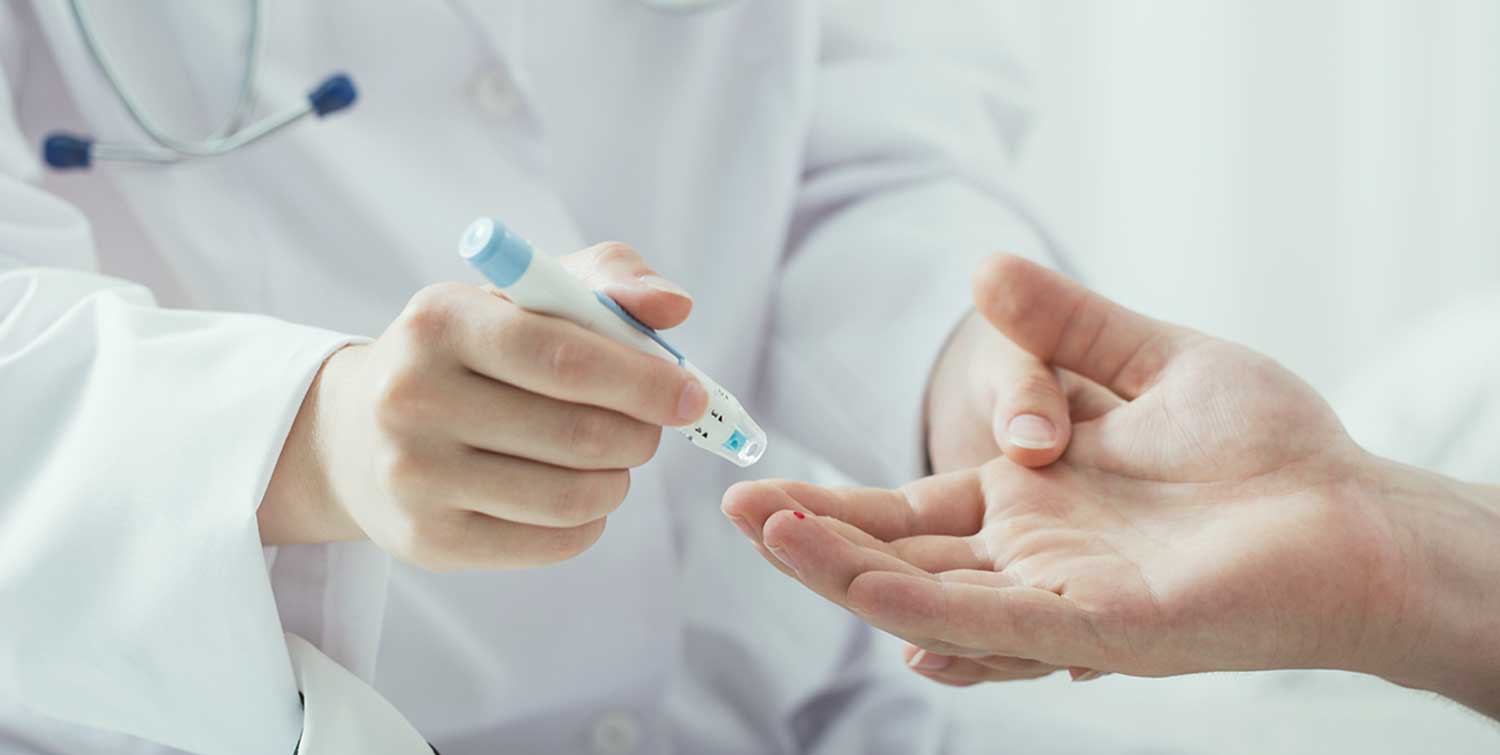This leaflet is meant to help you understand diabetes better. So, if you have been diagnosed with diabetes, do not worry and try to learn more about it. With knowledge about the disease and proper advice you can control diabetes and lead a happy and healthy life. Good luck to you!
What is diabetes mellitus?
It is a disease which affects millions of people across the world. For our body to work better we need to convert glucose (sugar) into energy. This is achieved with help of a hormone called ‘Insulin’. In diabetes, production of insulin in the body is insufficient or does not work properly. Due to this, sugar levels in our body rise above normal and can lead to adverse effects.
Who gets diabetes?
Diabetes can affect any person at any age. People with a family history of diabetes are more prone compared to others. Eating sweets or chocolates does not cause diabetes. It is more common in persons who are overweight or obese.
Diabetes is of two types:
Type I usually affects young people and these patients lack insulin in body.
Type II diabetes is seen usually in adult patients due to improper insulin production or action.
Sometimes, diabetes can be picked up for the first time during pregnancy (gestational diabetes), this tends to settle down after the delivery.
What are the symptoms of diabetes?
In type I diabetes, patients complain of excessive thirst, passing urine frequently, feeling tired or loss of weight. Type II diabetes patients do not have any specific symptoms. Most commonly, diabetes is detected incidentally after a health check up. Tingling and numbness of hands or feet, blurred vision, poor wound healing and tiredness should prompt a blood test for diabetes.
How is diabetes diagnosed?
Fasting and post meal (2hours) blood sugar levels are required for a diagnosis. Blood HbA1C levels (indicates 3 month average sugar control) along with blood sugar test is also used to make a diagnosis. Blood test should be a done at a laboratory, home blood sugar testing using glucometer are useful in monitoring of blood sugars and not for diagnosis. Sometimes, doctors may choose to repeat the blood sugar test to eliminate any possible influence of a high sugar diet the previous day or erroneous report from a laboratory.
Diabetes- HbA1C levels above 6.5%
Pre-diabetes (stage before developing diabetes) – HbA1C levels 5.7 to 6.4%
Normal- HbA1C levels below 5.7%
Blood sugar levels in diagnosing diabetes (WHO, NICE guidelines)
| Plasma glucose test | Normal | Pre-diabetes | Diabetes |
| Random blood sugar | Below 200mg/dl | N/A | Above 200mg/dl |
| Fasting blood sugar | Below 100mg/dl | 100 to 125mg/dl | 126mg/dl or more |
| 2 hour-post prandial (breakfast or lunch) | Below 140mg/dl | 140 to 199 mg/dl | Above 200mg/dl |
Why should we be concerned about diabetes?
High blood sugar levels for long time can affect your eyes, kidneys, blood vessels, heart and nerves. Patients with uncontrolled diabetes are at risk for heart attack, stroke, kidney failure, nerve damage, loss of vision, wound infections and poor wound healing. It is important to diagnose diabetes early and take adequate treatment to avoid complications.
What treatment is available?
Treatment includes- diet adjustments, tablets or Insulin injections. Your doctor will choose the treatment best suited for you. Sometimes, it may take a little while before correct medication and its dose is known. You may require one tablet or more to control your blood sugar levels. Some of the medications come with additional benefits of heart protection along with blood sugar control. Your doctor will decide the appropriate medications and will give you a prescription.
If you have been advised to take insulin please learn from your doctor or a specialist nurse about the correct way of taking it and attend to your follow up visits regularly.
What else can be done?
Apart from regular medications you need to exercise daily. Please check with your doctor about the type of exercise and duration. Most patients find regular walking in a safe environment very useful. If you are a smoker or drink alcohol, then, you need to seriously consider quitting these habits. Please wear proper footwear to avoid any wounds on your feet.
It is important to take a proper diabetic diet. Those who follow appropriate diet as per advice can keep their diabetes under good control and also build immunity. You can choose to take advice from your doctor or consult a dietician. Many patients decide to cut down on their food intake once they learn that they have diabetes. Please remember that you have lot of choice of various food items you can still enjoy although you have diabetes. You should stop taking sugar in your tea or coffee and more importantly avoid eating sweets and sweet fruits like mango, banana etc. If diet control is not followed managing diabetes with medications will become a problem.
Do not neglect cuts, wounds or any infections. Patients with poor control of diabetes can develop infections easily, sometimes serious infections. Healing of wounds and recovery from infections may also become slow if blood sugar levels are abnormally high.
Consult an eye specialist to specifically look for changes of diabetes in your eyes. It is important to get a thorough eye check up to look at the back of the eye (retina) on a yearly basis.
What is hypoglycemia?
If your blood sugar levels drop very low (usually below 60mg/dl) it can make you feel unwell. There are many reasons for this to happen. Most commonly, taking your diabetes medicine and not eating properly. Patients may feel headache, excessive hunger, sweating, blurring of vision (fainting), tiredness, hand shaking and fast heart beat. If untreated, it may lead to confusion, slurring of speech, drowsiness and even fits (seizures). If you have been eating well and still your blood sugar levels are going below acceptable range then you should arrange to meet your doctor immediately. Maybe your medications and its dose may have to be changed. It is important to seek immediate medical attention if you develop frequent episodes of hypoglycemia or an episode where the blood sugar levels go low and you lose consciousness or develop fits.
How do we treat hypoglycemia?
Try to take any food item which has sugar in it. Drinking a glass of milk or juice with sugar or eating sugar itself can help. Some patients carry sugar containing toffees or chocolates with them to use in emergency. If more serious problems arise then go to your nearest hospital or clinic immediately. You may feel better after taking a sugar drink or sugar itself but after sometimes blood sugar levels may drop again (as the action of the blood sugar controlling medication may still be continuing) so, it is important to monitor blood sugar levels.
Can diabetes be cured?
Diabetes cannot be cured. However, lot of research is underway to find a permanent solution for this problem. There are many experiments underway to treat diabetes differently and also newer medications with more benefits are being studied.
Please take your medications as advised by your doctor and never stop medications suddenly without consulting the doctor. Remember that there are lots of people across the world who live a normal life and have achieved lot of success despite having diabetes. Make sure you remain under regular follow up with your doctor and monitor blood sugar at home as and when instructed. Note: this is only an information sheet, if you have any queries, please ask your Doctor.



